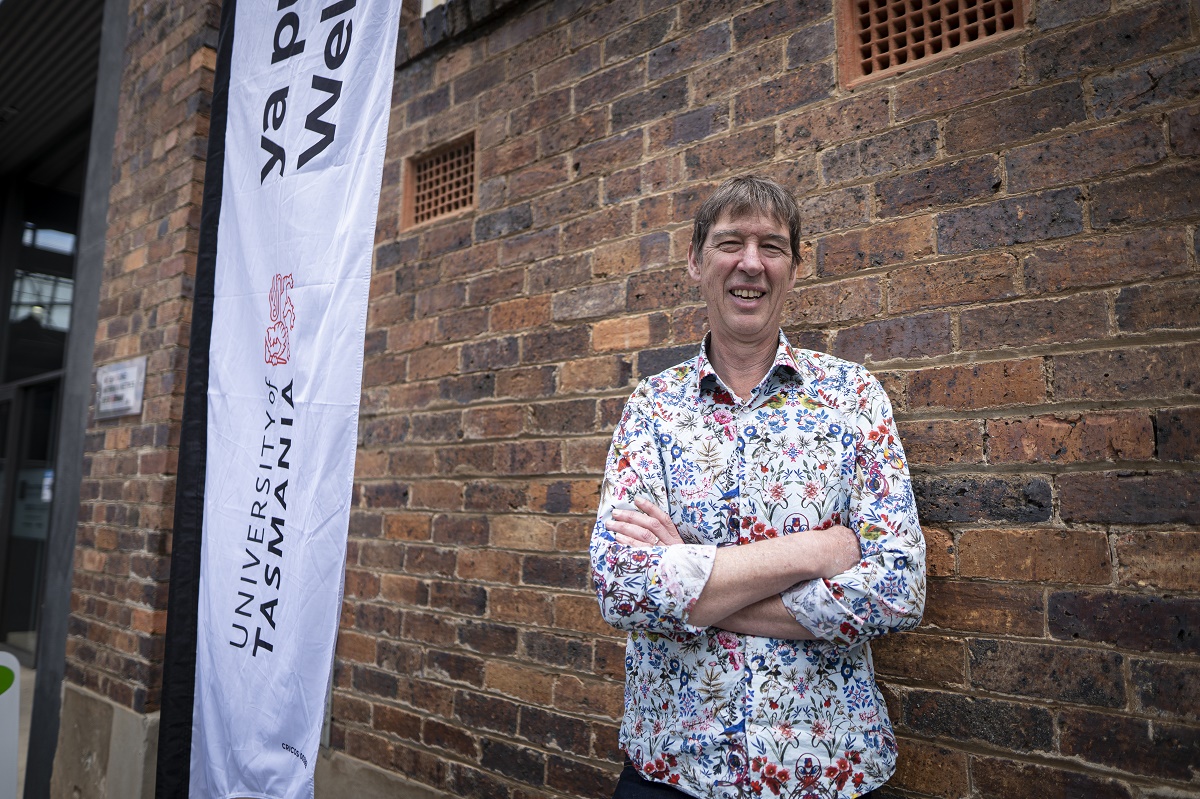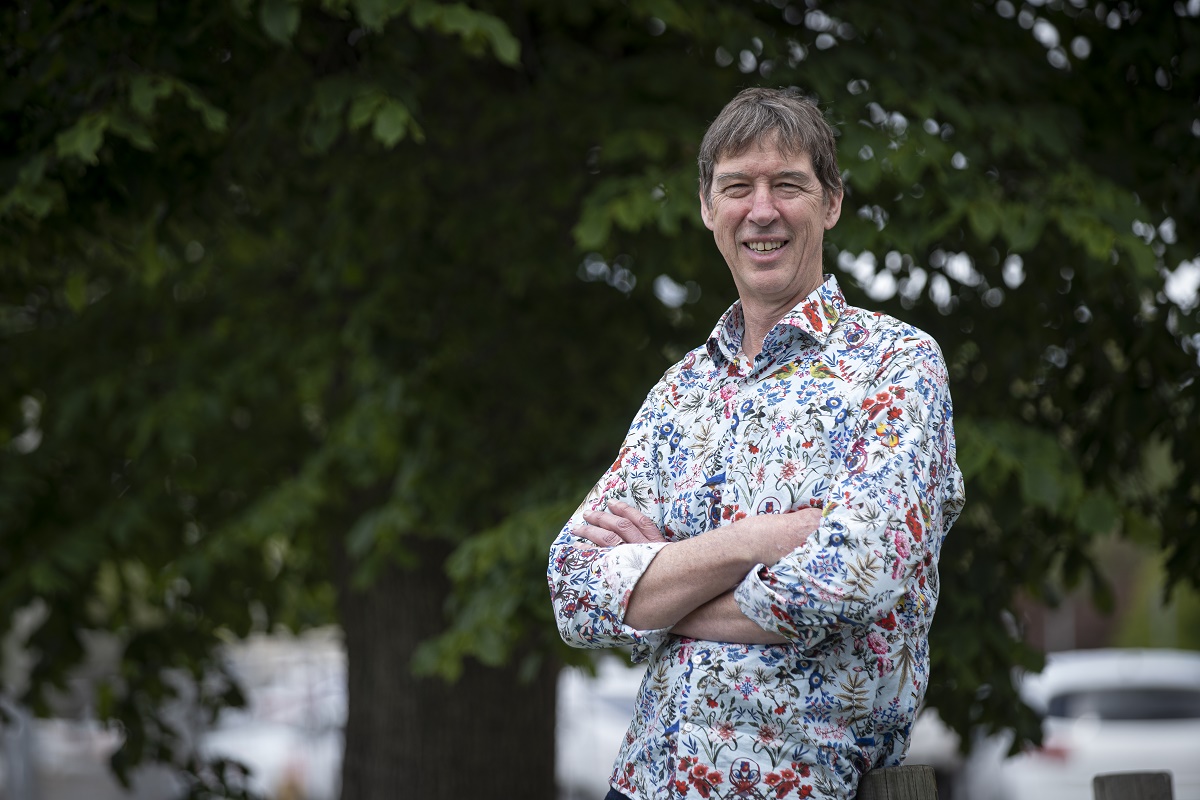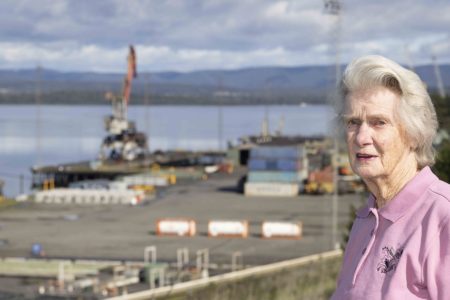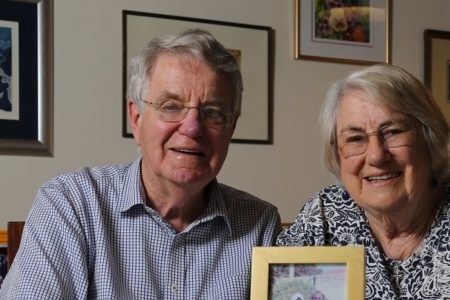By Donald Moss
More than 20 years ago, actors Kevin Spacey, Helen Hunt and Haley Joel Osment starred in a well-received movie called Pay It Forward.
Its simple premise, based on the novel by Catherine Ryan Hyde, was that rather than paying someone back for a favour, the recipient would do a favour for three other people.
Since then, the term paying it forward has come to represent the belief that empathy and selflessness are characteristics worth rewarding and encouraging in people, who will then pass on those traits.
For Launceston’s Pilgrim UC member Stephen Ives, it’s a mantra that underpins how he lives his life, as both a committed Christian and in projects he is involved with 8000km away in Vietnam.
At least twice a year since 2011, apart from the two years that COVID shut international borders,
Stephen has travelled to Hanoi as part of a research project funded by a side arm of the Department of Foreign Affairs and Trade which aims to help small-scale farmers in Vietnam.
“The primary objective is to promote the health and welfare of women and children, and the funding is into research for development,” Stephen explains.
“It’s about providing people with the skills to do certain things and understanding why they might be doing things in a particular way.
“It’s also about seeing how these farmers can progress and improve farming and animal practices and the environment in which they are living.”
In the 11 years since he began, the University of Tasmania Discipline Leader and Research Fellow at the College of Business and Economics has come to regard Vietnam as his second home.
And in that second home he has established a deep and rewarding relationship with the people of Vietnam.
Stephen’s Vietnam adventure began over a decade ago when the opportunity arose while completing a PhD to travel to the Southeast Asian country and work with local universities and research institutions to enable small-holder farmers to integrate livestock and cropping practices into their farming.
It was, he admits, quite an undertaking at the time, given he and wife had two children aged eight and six.
“At the time I was finishing my PhD and working in Tasmania for farmers, looking after their crops, when I had an opportunity to do this international research project,” Stephen recalls.
“We had two little kids and I told my wife Penni about this opportunity, and we had always had this idea of doing something in the form of mission work.

Stephen’s experiences in Vietnam have shown him what can be gained from bringing people together.
“And I thought if we did this it would work well because we could travel as part of the project. This fitted in really well to a much earlier conversation I had with my wife before I even started my PhD, when she said, ‘yep, I’m really happy for you to do a PhD, as long as we can travel afterwards’. The ducks were lining up.
“So the challenge was there and I wrote myself into a research project in Vietnam and we moved there for a year.
“We took the kids out of school and their teachers said, ‘that’s fine and they don’t need to be in school because they will learn so much during that year’.
“It was such a great experience for everybody.”
At the heart of that first year in Vietnam was Stephen’s belief that as people of the world there is so much more that unites us, than divides us.
“You know, you can concentrate on all the things that are different about people you are with or you can focus on the similarities that exist and build on that,” he says.
“So a relationship grew based on those connections and, when it was time to come back to Australia, no one really wanted to come back.
“It was all about relationships and how they can be formed.”
For Stephen, it was a time that took his thoughts back to the 1990s and a survey conducted by the Uniting Church asking members to give their thoughts on what Church should look like.
“It was a question around how do people first come into that Church family, that sense of recognition of who they are and that sense of belonging,” he says.
That sense of belonging emerged as Stephen and his family became members of a congregation in Vietnam.
“The first week we were there we walked in and we were asked whether we had moved to Hanoi or were we just passing through,” he says.
“And I explained we had just moved there and suddenly I was given a list of things that they wanted us to be involved in.
“It was explained to me that there was such a transient population in Hanoi that this church survived through the work of volunteers, so we had arrived and they were going to put us to good use.”
For a musically-inclined Stephen, it also meant playing guitar in a church band that would have made the United Nations proud.
“There were members from South Africa, Nigeria, The Philippines and Germany in the band and that was quite an experience,” he recalls.
Stephen’s time in Vietnam and the connections he has made with the people there have only strengthened his faith and what it means to be a person of Christ.
“It was really about Penni and I wanting to do something that expressed our faith through actions in a place where it’s harder to do that then in some other places,” he says.
“Vietnam is a Communist country and you have to recognise that, and it was only when we brought some of my Vietnamese colleagues back to Australia a year later that they asked me why I do what I do.
“My answer was that I live my faith through what I do and I want to help and empower people, and what that means in terms of living out my faith.
“You know, the government in Vietnam is quite cautious about seeing any outward show of religious transformation, so it was about living out what we do and, when people ask about that, being honest and open with them.
“One of my Vietnamese colleagues, when we were back in Australia, explained it by saying, ‘well, Stephen just wants to help people’.”

“I think we all get so much out of it, and I have learnt so much about myself and how we can work with people and communities,” Stephen says.
And that brings us back, or forward, quite neatly to that concept of paying it forward.
During his time within the Uniting Church, Stephen has been heavily involved in youth work, something he was able to bring with him to Vietnam.
“One of the school teachers who was also a farmer there said to me, ‘can you come and do something with the school?’,” Stephen explains.
“So I devised a two-hour program for the students, with activities and singing, and the children went home to their parents, told them what they had been doing and then we had the parents coming to the program, so the children were really change agents in that sense.
“I’ve now got a student doing a PhD on the impact of that program, which we have modified and will run again.
“So if you actually care for the children and work with them to build their knowledge and capacity, particularly in that type of culture, the parents look at you and say, ‘well if you do that for our kids you obviously care about us, so we’ll listen to you and we’ll work with you’.
“I think we all get so much out of it, and I have learnt so much about myself and how we can work with people and communities.
“If you can’t understand and empathise with people you can’t walk the journey with them.”
Ask Australians what Vietnam means to them and most will mention the war that blighted the country for two decades.
While it can’t be glossed over, Stephen says it’s a dark chapter in the country’s history that its people want to put behind them.
“I have had some deep discussions with Vietnamese people when I’m there about everything that the country has gone through and it seems to me that the people just want to get their country back together,” he says.
“These people are so forgiving, and while they have lost a little bit of trust, if you show them you are fair dinkum they will respond.
“So now when I take new people over to Vietnam, Vietnamese people will say, ‘oh, they are with you Stephen, so they must be okay and everything is fine’.”
As he reflects on that concept of paying it forward and how it is such an intrinsic part of his faith, Stephen reflects on the opportunities provided to one young Vietnamese woman as an example.
“We had this young lady working three days a week for us when we lived there,” Stephen says.
“She was 22, had a young child, and she didn’t know any English but loved to cook.
“And so one night a week my wife and her would cook in the kitchen and share the Vietnamese names of things and she was such a witty girl, and later on we found out her grandfather was a school teacher and knew eight languages fluently.
“So we helped her a lot in learning English and then we brought her back to Australia for three months.
“When she went back to Vietnam she actually doubled her income because she got a different job because she could now speak English.
“She was then able to help a friend of hers because, as she said, ‘I have something and they have nothing and I can help and support them’.
“You never know where the dominoes might fall, but my faith compels me to want to be in a situation where I can provide some sort of assistance and improve the health and wellbeing of people.”



